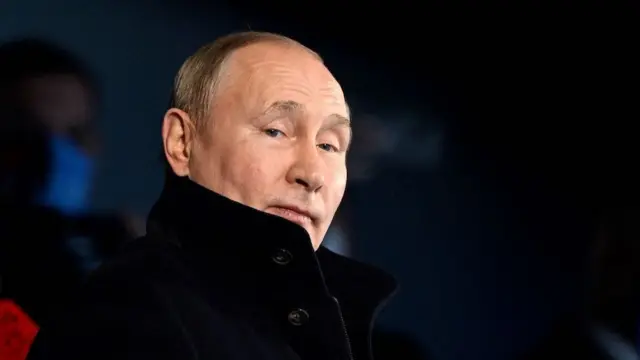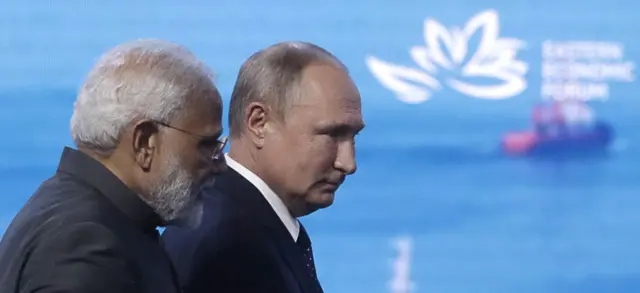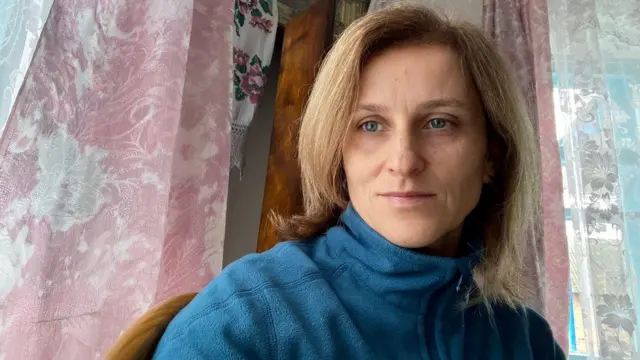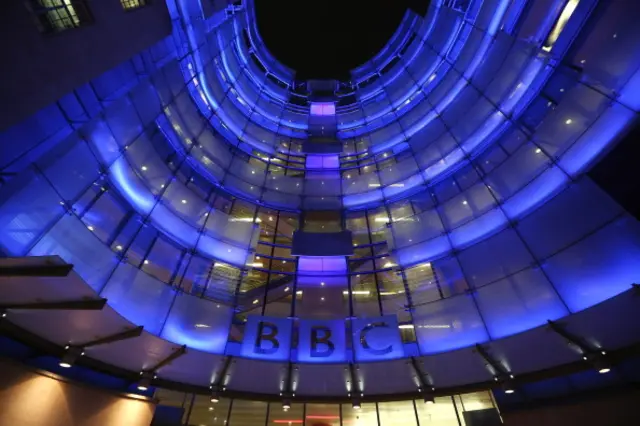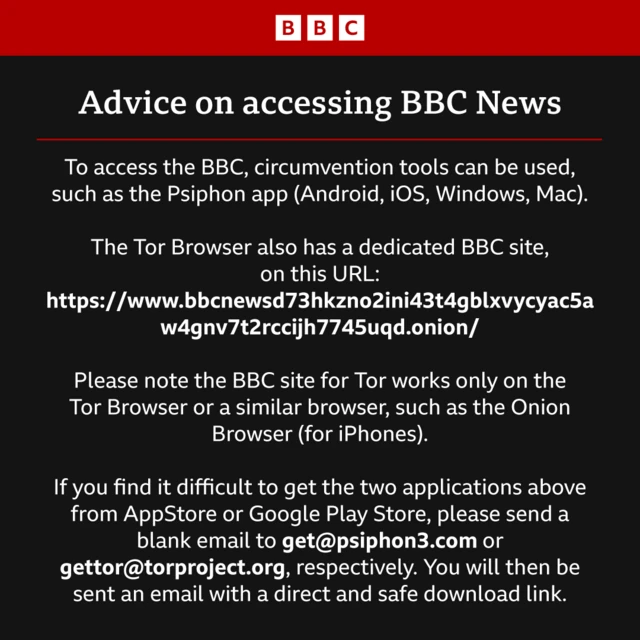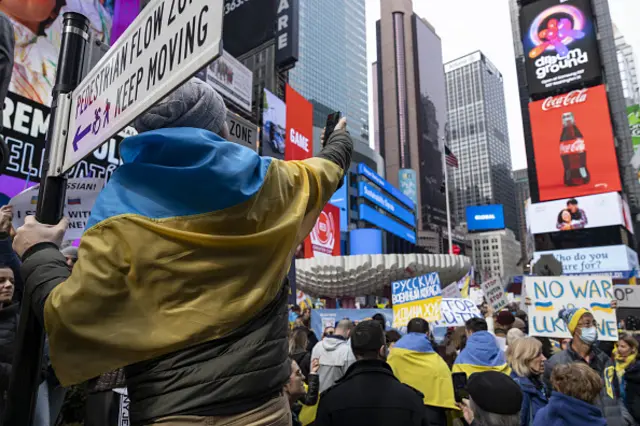The difficulty of explaining wars to childrenpublished at 03:32 GMT 6 March 2022
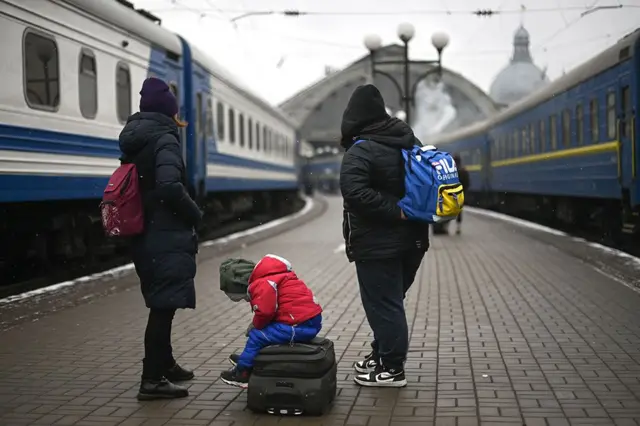 Image source, Getty Images
Image source, Getty ImagesIt’s often said that children suffer the most during wars and it’s true for Ukraine as well.
Parents are finding it difficult to explain to their children how their world went upside down so suddenly.
Anton Eine has been hunkering down in Kyiv with his wife and their three-year-old son since Russia invaded Ukraine. He says some parents have sewn badges with their child's blood group on to their clothes and are teaching them their home address and parents' names, in case they are separated.
There are so many such stories in Ukraine. Click here to read more about how children and their parents are bearing the brunt of the war in Ukraine.
